GENEVA – Two United Nations human rights experts today urged the Government of the Democratic Republic of the Congo (DRC) to put an immediate end to the disproportionate use of force against the exercise of the freedoms of peaceful assembly and expression in the country. According to information received, more than 80 people have been reportedly killed, hundreds injured, thousands arrested and at least 225 demonstrations have been squashed or banned since protests began in January 2015 against proposed reforms to the electoral law that could allow current President Joseph Kabila to stay in office beyond the constitutional limit of two terms. Details are still being verified and other sources report much higher figures. Human rights defenders, journalists and opposition leaders have reportedly been particularly targeted by the Congolese National Police, the National Intelligence Agency, the Republican Guard and the armed forces. “The DRC security forces have repeatedly used excessive force to quash protests related to proposed presidential elections, firing teargas and live ammunition into crowds of protestors and inflicting numerous casualties,” said the UN Special Rapporteur on freedom of peaceful assembly and of association, Maina Kiai. “People’s demand for a legal and peaceful political transition... Continue reading →
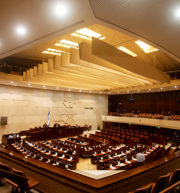
GENEVA – Three United Nations human rights experts today urged Israeli lawmakers not to approve the so called ‘NGO transparency bill’ that would, in effect, target non-governmental organizations that are critical of government policy. The experts expressed grave concern that the legislation would chill the speech of human rights NGOs by subjecting them to harsh penalties for violations and delegitimizing them publicly. The stated aim of the legislation is to increase transparency by requiring NGOs that receive more than half of their funding from foreign government entities to disclose certain information, such as the names of their donors in all publications intended for or made available to the public, or in any written appeal to a public employee or public representative. “The promotion of transparency is indeed desirable and legitimate,” said the UN Special Rapporteur on freedom of expression, David Kaye. “However, the pending legislation has the evident intent of targeting human rights and civil rights organizations, which receive a majority of their funding from foreign government entities, while leaving unaffected other organizations that nonetheless receive a substantial amount of foreign funding from individuals.” The proposed legislation is again before the Knesset, after having passed the first... Continue reading →
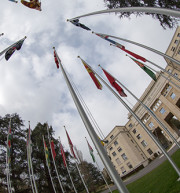
Commentary by Maina Kiai, UN Special Rapporteur on the rights to freedom of peaceful assembly and of association It’s been well documented in recent years that space for ordinary people to exercise their fundamental freedoms – and to participate in their own governance – is closing at a rapid and disturbing pace worldwide. A 2015 study, for example, showed that the core freedoms of expression, association and peaceful assembly were violated to a significant degree in at least 96 countries during 2014. And that is only one of many indicators. What’s less discussed is that space to exercise fundamental freedoms is closing at the international level as well. And ground zero, shamefully, is the very place where these rights should be thriving: The United Nations, one of whose pillars, ironically, is human rights. The United Nations human rights bodies and mechanisms, including the Human Rights Council, are key spaces for NGOs to exercise their rights to freedom of expression, association and peaceful assembly that are so frequently denied back home. But the same governments that are restricting NGOs domestically are stepping up efforts to take away NGOs’ voices on the international stage as well. They are doing this by hijacking, and subsequently closing, the main door used by civil society to enter the United... Continue reading →
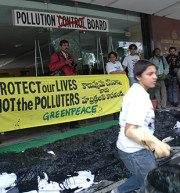
NAIROBI/GENEVA - United Nations Special Rapporteur Maina Kiai has published a legal analysis arguing that India's Foreign Contributions Regulation Act (FCRA) - which regulates foreign funding to certain individuals, associations and companies - is not conformity with international law, principles and standards. The analysis, which was submitted to the Government of India on April 20, 2016, is available here. The FCRA, which was enacted in 2010, bars “organizations of a political nature” from accepting foreign contributions. Acceptance of foreign contributions may further be prohibited where the Government “is satisfied that the acceptance of foreign contribution… is likely to affect prejudicially… public interest.” The law has come under scrutiny in recent years, with some sources reporting that nearly 14,000 NGOs have seen their licenses to receive foreign funding revoked by the Government. The Special Rapporteur argues that the ability of civil society organizations to access resources, including foreign funding, is a fundamental part of the right to freedom of association under international law, standards, and principles – and more particularly part of the right to form an association. He further asserts that India’s limitations on access to foreign funding do not meet “the stringent test... Continue reading →
GENEVA – Three United Nations human rights experts, including Maina Kiai, today raised alarm at the continuing crackdown on human rights defenders and civil society organisations in Egypt. They warned that many NGOs have been closed down, and human rights defenders have been interrogated by the security forces, subjected to travel bans and had their assets frozen in retaliation for their legitimate and peaceful human rights work. “Egypt is failing to provide a safe and enabling environment for civil society in the country,” the UN experts on human rights defenders, freedom of expression, and freedoms of assembly and association said. “The Government must immediately put an end to all forms of persecution and take effective measures to protect civil society.” The rights experts reiterated their call on the Egyptian authorities to amend Law 84/2002 on Non-Governmental Organizations without delay, which remains in force despite widespread criticism. “The recent attempt to forcibly close the Nadeem Center for Rehabilitation of Victims of Violence demonstrates how Egypt’s NGO Law is being used to obstruct the reporting on human rights issues, such as torture,” explained the experts. The Center was issued with a closing order on 17 February 2016 for publishing reports on torture, which is deemed a... Continue reading →
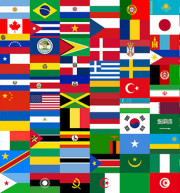
Special Rapporteur Maina Kiai has released 34 country background reports that he consulted in drafting his recent report comparing the enabling environments for businesses and civil society around the world. The Special Rapporteur's report, which is available here, was presented to the United Nations General Assembly in October 2015. It found that States and others often impose more burdensome regulation upon civil society, both in law and in practice, with businesses receiving more favourable treatment. The net result is that for businesses the enabling environment — defined broadly as action or inaction by States and other actors to promote a particular non-State sector — is typically much better than it is for associations. The country background reports were prepared by pro bono counsel for the American Bar Association's Center for Human Rights, which coordinated the research on behalf of the Special Rapporteur. They provide an overview of the legal environment for both businesses and non-profit associations in 34 countries, focusing on: (1) registration procedures, (2) tax laws, (3) financial transaction laws, (4) auditing and reporting requirements, (5) and penalties for non-compliance with the law. Limited time and resources dictated that research could not be commissioned on all 193 UN Member States. The 34... Continue reading →
GENEVA – The United Nations Special Rapporteur on the rights to freedom of peaceful assembly and of association, Maina Kiai, on Friday urged the Bangladeshi Parliament not to adopt a bill which could severely restrict civil society organizations’ access to funding and hinder their activities. The draft Foreign Donations (Voluntary Activities) Regulation Act is expected to be debated during the next Parliament session starting 8 November 2015. “This Bill is deeply worrying. Civil society is a crucial component for the promotion and protection of human rights, good governance and the rule of law, and for contributing to the provision of humanitarian assistance,” Mr. Kiai said. “Unduly restricting civil society organizations’ access to resources therefore not only has a detrimental impact on freedom of association, but also deeply undermines the civil, political, economic, social and cultural rights that these organizations seek to promote and protect,” he stressed. The Special Rapporteur noted that the proposed law would, among other problematic issues, make it compulsory for NGOs seeking to receive or use foreign funds to register with the Government-controlled Non-Governmental Organizations Affairs Bureau, and obtain its approval for each project undertaken with these resources. The Bureau’s... Continue reading →
Portugues GENEVA – Proposed anti-terrorism legislation currently being considered by Brazil’s Congress is too broadly drafted and may unduly restrict fundamental freedoms, warned today a group of UN Special Rapporteurs including Maina Kiai. “We fear that the definition of the crime established by the draft law may result in ambiguities and confusion as to what the State considers a terrorist offence, potentially undermining the exercise of human rights and fundamental freedoms,” the independent experts said. Law N° 101/2015 seeks to define crimes of terrorism in Brazil and provides for other investigative and procedural provisions. On 28 October 2015, the Brazilian Senate passed the legislation by 34 votes to 18. The amended text now returns to the lower house. “We regret that the current draft excluded a previous article establishing an important safeguard that would protect participation in political demonstrations and social movements from falling under the legislation’s scope,” the experts said. The Special Rapporteurs shared their concerns with the Brazilian authorities, who in turn provided further clarifications on the draft law. “States have a duty to protect civil society and the rights that are critical to its existence and development, such as the rights to freedom of peaceful... Continue reading →
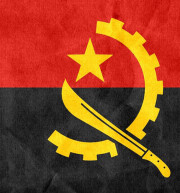
GENEVA – The United Nations Special Rapporteur on the situation of human rights defenders, Michel Forst, today urged the Government of Angola to release fourteen activists arrested in June after taking part in peaceful meetings to criticize lack of good governance in the country. Special Rapporteur Maina Kiai joined Forst's call, along with three other UN experts. “Deprivation of liberty on the sole ground of having promoted good governance and exercised the rights to free expression and peaceful assembly may be considered arbitrary,” Mr. Forst warned referring to the case of Luaty Beirão, a prominent Angolan musician and rights activist, and the other defenders arrested. “Such criticism is not only fully legitimate according to Angola’s obligations under human rights law; it is also essential to the free and public debate necessary for a healthy civil society in the country,” the independent expert stressed. After their arrest, the ‘Angola fourteen’ were charged in September, together with two women rights defenders who remain at liberty awaiting trial, for the ‘preparatory acts to practice rebellion’ and ‘plotting’ against state institutions, both of which are considered to be crimes against the security of the Angolan State. Held in pre-trial detention for longer than 90 days, the... Continue reading →
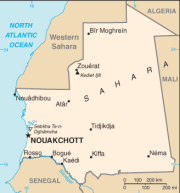
GENEVA – The United Nations Special Rapporteur on the rights to freedom of peaceful assembly and of association, Maina Kiai, today called upon the Mauritanian Parliament to reject the draft law on associations approved by the Council of Ministers last month without public consultations. “While I support Mauritania’s efforts to reform and improve laws that govern the work of civil society, I am concerned that the bill, as it stands, threatens the exercise of fundamental freedoms in the country, in particular the right to freedom of association,” Mr. Kiai said. The human rights expert further voiced particular concern about the lack of civil society consultation ahead of the elaboration of the recently amended draft Law on associations, foundations and networks of associations, which is not in line with international standards. “The Mauritanian Government should view civil society as a key partner in the process of reform.” “Legislation that enshrines mandatory procedures for the ‘prior authorization’ of associations, instead of a simple process of ‘prior notification’, risks hindering the work of civil society in Mauritania,” he said. Instead, Mr. Kiai stated, “a prior notification process that automatically attributes an association the legal personality to function is in greater conformity... Continue reading →